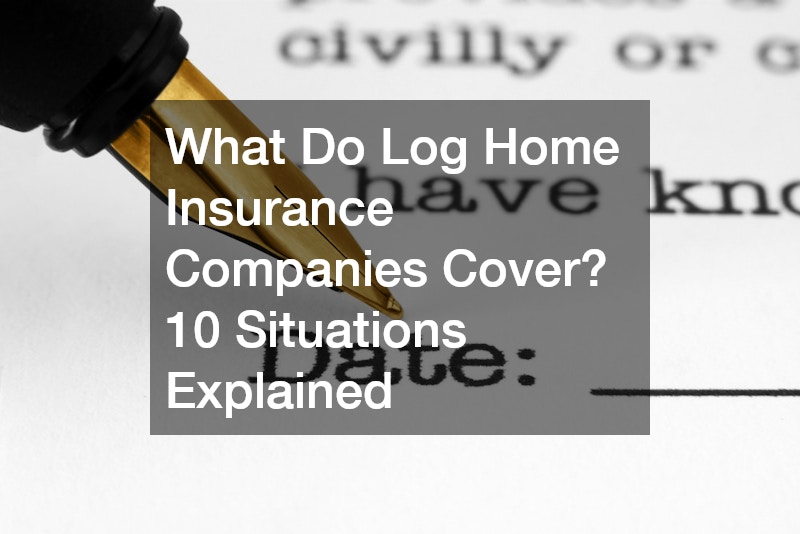
Filing a car insurance claim can feel overwhelming, especially in the aftermath of an accident. However, understanding the process and knowing what steps to take can make the experience less daunting. Whether you’ve been involved in a minor collision or a major accident, being prepared and informed can help you navigate the claims process more effectively. In this comprehensive guide, we’ll provide you with everything you need to know about filing car insurance claims, from initiating the process to handling disputes and appealing denials. By arming yourself with knowledge, you can ensure that your rights are protected and that you receive the compensation you’re entitled to.
1. How to Start the Claims Process

Initiating the claims process begins with contacting your insurance company. Your auto insurance agent will guide you through the necessary steps and provide you with instructions on how to proceed. When contacting your insurance company, be prepared to provide detailed information about the accident, including the date, time, and location, as well as the names and contact information of any other parties involved. Once your claim is filed, your insurance company will assign an adjuster to handle your case. It’s essential to understand your policy coverage before proceeding, as this will determine what damages are eligible for compensation under your policy. You may also need to look into if roadside assistance is included in your policy.
Providing accurate and thorough information is crucial during the initial stages of the claims process. Be prepared to provide documentation such as photos of the accident scene, witness statements, and police reports. These documents will help support your claim and ensure that you receive fair compensation for your damages. Understanding your policy coverage and knowing what information to provide can streamline the claims process and help expedite the resolution of your claim. By taking proactive steps and working closely with your insurance company, you can ensure that your claim is handled efficiently and that you receive the support you need during this challenging time.
2. Documenting the Accident
Documenting the accident is a critical step in the claims process, as it provides evidence to support your claim and helps establish liability. Start by taking photos of the accident scene from multiple angles, focusing on any damage to vehicles, road conditions, and traffic signs or signals. Be sure to capture close-up shots of any visible damage, as well as wide-angle shots that show the overall scene. Additionally, gather witness statements from anyone who saw the accident occur. Witness statements can provide valuable testimony and corroborate your account of the events leading up to the accident. Finally, collect police reports from law enforcement officers who responded to the scene. Police reports contain important details about the accident, including the parties involved, any citations issued, and statements from witnesses. Providing these documents to your insurance company can help support your claim and expedite the claims process.
3. Working with Adjusters

Once your claim is filed, an adjuster will be assigned to assess the damage to your vehicle and determine the value of your claim. Adjusters play a crucial role in the claims process, as they are responsible for investigating the accident, reviewing evidence, and negotiating settlements. When working with an adjuster, it’s essential to be prepared and proactive. Schedule inspections promptly to assess the damage to your vehicle and provide estimates for repair costs. Review these estimates carefully and ensure they accurately reflect the extent of the damage. If you’re not satisfied with the initial offer, don’t hesitate to negotiate with the adjuster to reach a fair settlement. Remember, you have the right to seek car maintenance from a repair shop of your choice, so don’t hesitate to advocate for quality repairs.
4. Repairing Your Vehicle
Once you’ve chosen mechanic shops, it’s essential to understand the repair process and what to expect. The car repair shop will begin by assessing the damage to your vehicle and creating a detailed repair plan. Depending on the extent of the damage, repairs may include bodywork, painting, and mechanical repairs. Throughout the repair process, the shop should keep you informed of any updates or changes to the timeline. Be sure to ask questions if you’re unsure about any aspect of the repair process, and don’t hesitate to request updates on the status of your vehicle. By staying involved and informed, you can ensure that your vehicle is repaired properly and that the final outcome meets your expectations.
5. Dealing with Injuries

Injuries sustained in a car accident can have long-lasting physical, emotional, and financial effects. It’s essential to seek medical treatment promptly and follow your doctor’s recommendations for recovery. Keep detailed records of all medical treatment related to the accident, including doctor’s visits, prescriptions, and physical therapy sessions. These records will serve as evidence to support your claim for compensation for medical expenses. Additionally, be sure to communicate regularly with your insurance company about your injuries and treatment progress. Understanding your personal injury protection benefits and how they apply to your situation can help alleviate some of the financial burden associated with medical expenses and lost wages. Be sure that you understand your automobile insurance plans.
6. Handling Property Damage
Dealing with property damage can be stressful, especially if your vehicle has been deemed a total loss. If you disagree with the valuation provided by your insurance company, you have the right to seek an independent appraisal or hire a professional to assess the value of your vehicle. Be prepared to provide evidence to support your valuation, such as comparable vehicle listings or repair estimates from reputable shops. Additionally, if you’re dissatisfied with the amount offered by your insurance company for property damage, you may have the option to file a dispute or appeal the decision. Consult with your adjuster or insurance company to understand the process for resolving disputes and ensure that your rights are protected throughout the process. By advocating for yourself and seeking additional compensation when necessary, you can ensure that you receive fair compensation for your property damage and that your rights are upheld throughout the claims process.
7. Filing a Third-Party Claim

If you’ve been involved in an accident that was caused by another party, you may need to file a third-party claim against their insurance company. This process involves contacting the at-fault party’s insurance company to initiate the claims process and provide evidence of liability. When filing a third-party claim, it’s crucial to gather as much evidence as possible to support your case. This may include witness statements, photos of the accident scene, and any other relevant documentation. Be prepared to provide a detailed account of the events leading up to the accident and to cooperate fully with the insurance company’s investigation.
Once your claim is filed, the at-fault party’s insurance company will assess the evidence and determine liability. If they accept liability, they may offer you a settlement to cover the cost of your damages. However, it’s essential to review any settlement offers carefully and ensure that they adequately compensate you for your losses. If you’re not satisfied with the initial offer, don’t hesitate to negotiate with the insurance company to reach a fair settlement. Keep in mind that you have the right to seek legal representation if you feel that your rights are not being upheld or if you’re unable to reach a satisfactory resolution through negotiations. By advocating for yourself and seeking fair compensation, you can ensure that your rights are protected and that you receive the support you need to recover from the accident.
8. Understanding Deductibles
Understanding your insurance deductible is essential when filing a car insurance claim. Your deductible is the amount of money you are responsible for paying out of pocket before your insurance coverage kicks in. Before filing a claim, it’s essential to know your deductible amount, as this will affect the amount of compensation you receive for your damages. Your deductible amount is typically specified in your car insurance quote and may vary depending on your policy and coverage options. Keep in mind that choosing a higher deductible can lower your insurance premiums, but it will also result in higher out-of-pocket costs in the event of a claim.
When it comes time to pay your deductible, the process is typically straightforward. Once your claim is settled, your auto insurance company will deduct the agreed-upon deductible amount from your settlement check before issuing payment. Be sure to budget for your deductible amount and have funds available to cover this expense if needed. It’s also essential to understand how your deductible impacts your claim settlement. In some cases, your deductible may be subtracted from the total amount of your claim, reducing the final payout. By knowing your deductible amount and understanding how it affects your claim, you can make informed decisions about when to file a claim and how to manage your insurance coverage effectively.
9. Handling Uninsured Motorist Claims
Dealing with an uninsured or underinsured motorist can complicate the claims process, but if you have uninsured motorist coverage, you may still be able to receive compensation for your damages. If you’re involved in an accident with an uninsured motorist, the first step is to report the accident to your insurance company. Provide them with as much information as possible about the other driver and the accident circumstances. Your insurance company will then investigate the accident and determine if you’re eligible for compensation under your uninsured motorist coverage.
Once your claim is filed, your insurance company will assess the evidence and determine the value of your claim. This may involve reviewing police reports, witness statements, and photos of the accident scene. If your claim is approved, your insurance company will provide you with a settlement to cover the cost of your damages. Keep in mind that uninsured motorist coverage typically has limits, so your settlement may not cover all of your expenses. If you’re dissatisfied with the settlement offer or if you have questions about your coverage, don’t hesitate to contact your insurance company for clarification. By understanding your uninsured motorist coverage and advocating for yourself, you can ensure that you receive fair compensation for your damages.
10. Appealing Claim Denials
If your insurance company denies your claim for any reason, you have the right to appeal the decision. Start by reviewing the denial letter carefully to understand the reasons for the denial. Common reasons for claim denials include lack of coverage, policy exclusions, or insufficient evidence. If you believe that the denial was made in error or that additional information is needed to support your claim, gather any relevant documentation and submit it to your insurance company for review.
If your appeal is denied, don’t lose hope. You still have options for pursuing compensation, including seeking legal assistance. A qualified attorney can help you understand your rights and explore alternative options for resolving your claim. They can also represent you in negotiations with your insurance company or in court if necessary. Keep in mind that there are deadlines for appealing claim denials, so it’s essential to act quickly and decisively. By seeking legal assistance and advocating for yourself, you can increase your chances of overturning the denial and receiving the compensation you deserve. Remember, you don’t have to navigate the appeals process alone—reach out to a trusted legal professional for guidance and support.
Navigating the process of filing car insurance claims can be complex and challenging, but armed with knowledge and understanding, you can confidently navigate each step. From initiating the claims process to handling disputes and appealing denials, being informed about your rights and options is crucial for ensuring you receive fair compensation for your damages. By following the guidelines outlined in this comprehensive guide, you can protect your interests and secure the financial support you need to recover from an accident.
Remember, your insurance policy is there to provide you with peace of mind and protection in times of need. Don’t hesitate to reach out to your insurance company or seek legal assistance if you encounter any obstacles during the claims process. By advocating for yourself and staying proactive, you can ensure that your rights are upheld and that you receive the support you need to move forward.
While the process of filing car insurance claims may seem daunting, it’s essential to remember that you’re not alone. Your insurance company, along with legal professionals and other resources, is available to help you navigate the process and ensure that your rights are protected. By staying informed, proactive, and persistent, you can successfully navigate the claims process and secure the compensation you deserve.




